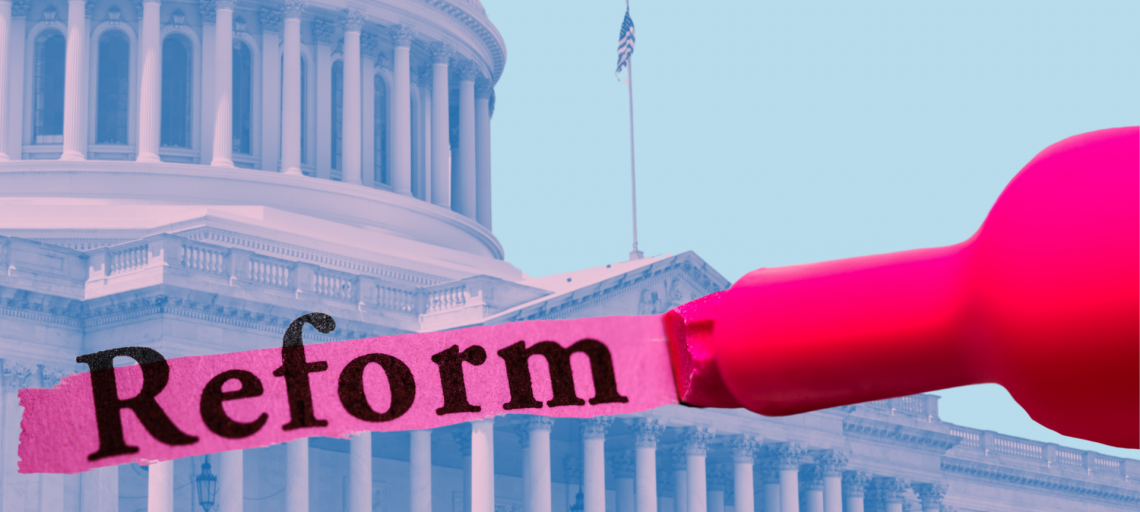
- April 10, 2025
- Credentialing
Key Healthcare Policies to Watch in 2025
The Trump administration has moved swiftly in its transition, setting the stage for significant shifts in healthcare policy. With regulatory changes, reimbursement models, and industry priorities in flux, 2025 is shaping up to be a pivotal year for the sector.
From ongoing reforms to new policy initiatives, several key areas are expected to take center stage. Here are three critical healthcare policies we’re keeping an eye on:
Medicare and telehealth flexibility
There is a stark correlation between internet access and an individual’s health. Greene County in Alabama is one of more than 200 “dead zone” counties in the U.S., where just over half of residents have access to high-speed and reliable internet. Individuals who live here have some of the nation’s highest rates of chronic diseases, with 1 in 4 adults having diabetes — twice the national average.
This year, the Biden administration’s 2021 “Internet for All” initiative is expected to begin distributing more than $42 billion in funding to support reliable high-speed Internet service to everyone in America, which is critical for the millions of people across the country who currently lack access. However, the program may change under the new administration. The U.S. Secretary of Commerce, Howard Lutnick, announced that the Commerce Department is reviewing and revamping Biden’s plan and will deliver high-speed internet access “efficiently and effectively at the lowest cost to taxpayers.” Research consistently shows a strong link between broadband access and improved health outcomes. Ensuring communities—especially those in broadband deserts and rural areas—have reliable internet is essential to expanding access to care and supporting better health.
On May 11, the House of Representatives voted to extend Medicare telehealth flexibilities for six months. The continuing resolution extends funding to certain health centers and supports low-volume hospitals; however, it does not roll back the 2.83% Medicare physician pay cut or include language to protect Social Security, Medicare, or Medicaid. This temporary fix gives the government the flexibility to make significant changes in the healthcare industry.
Affordable Care Act
The Affordable Care Act, known popularly as Obamacare, aims to improve healthcare access and affordability in the U.S. The ACA saw record enrollment levels in 2025 as the Biden administration increased premium subsidies for lower-income people and access to the enrollment period. However, it also saw many problems last year with fraudulent enrollments and hundreds of thousands of consumer complaints.
Trump has already reduced funding for ACA Navigators to $10 million per year for the next four years — a nearly 90% reduction from the $98 million allotted in 2024. Additionally, the administration has proposed shortening the annual open enrollment period by a month, ending coverage for immigrants who came into the U.S. illegally as children, and removing “sex-trait modification” as an essential health benefit.
Solving doctor shortages with licensing changes
Until recently, states required physicians who completed residency or equivalent training abroad to undergo the process again in the U.S. before earning a full medical license. To ease physician shortages in rural areas around the country, several states have made it easier for doctors with international training to obtain their medical licenses. According to the Federation of State Medical Boards, at least nine states have dropped this requirement since 2023, and more than a dozen others are considering similar legislation.
While supporters argue that qualified physicians shouldn’t have to repeat residency, opponents raise concerns about patient safety and question whether this change will effectively address nationwide doctor shortages. The new pathways still require complicated processes for foreign-trained doctors to get licensed like the standard three-part exam that all physicians take to become licensed in the U.S. and setting up malpractice insurance.
Existing agreements like the Interstate Medical Licensing Compact (IMLC) were created to streamline the licensing processes for physicians seeking to practice across multiple states. At face value, these agreements may simplify processes and enhance provider care, but critics raise concerns about the logistical challenges and broader implications of expanding the compact into a nationwide agreement. In an interview with Stephen Dubner of Freakonomics, Rebecca Allensworth, a professor of law at Vanderbilt University, argued that with national licensure, “We would get the requirements of the most onerous state, because as you said, no state is going to give up what they’ve got…. So I worry, if we did a national license, that it would be particularly onerous.”
Changes in healthcare are both inevitable and essential for addressing ongoing and emerging challenges. As the new administration settles in, it will be important for healthcare providers and professionals to stay informed about legislative and policy changes that could impact their practices and patient care.
Learn more about modio health, today.
